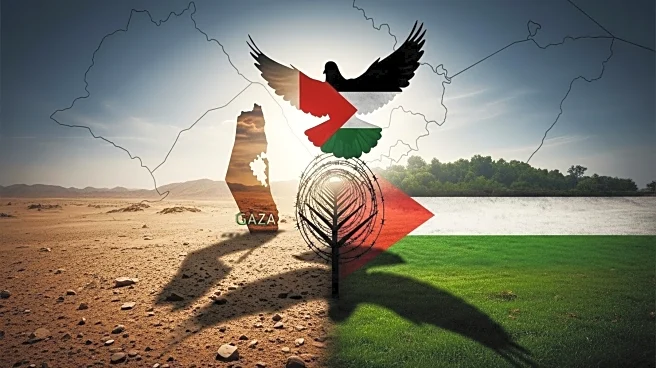What's Happening?
Israel is continuing its military operations in Gaza following the formal recognition of Palestine by the United Kingdom, Canada, and Australia. This recognition, opposed by the U.S. and Israel, is part of a broader diplomatic effort to support Palestinian statehood. The move comes as world leaders gather in New York for the U.N. General Assembly, where further recognitions are expected. The situation in Gaza remains tense, with ongoing military actions and international diplomatic maneuvers.
Why It's Important?
The recognition of Palestine by key Western countries marks a significant shift in international diplomacy, challenging Israel's policies and potentially altering the geopolitical landscape. This development could lead to increased tensions in the Middle East and impact U.S. foreign policy. The ongoing military operations in Gaza highlight the complexities of the Israeli-Palestinian conflict and the challenges in achieving a peaceful resolution.
What's Next?
The international community will be closely monitoring Israel's response to the recognition of Palestine and any subsequent actions. The situation may lead to diplomatic confrontations and affect future peace negotiations. The U.N. General Assembly will play a crucial role in shaping the international response and mediating the conflict.
Beyond the Headlines
The recognition of Palestine raises ethical and legal questions about the legitimacy of unilateral diplomatic actions and their implications for international law. It also underscores the cultural and historical complexities of the Israeli-Palestinian conflict, which has been a central issue in global politics. The move may influence future peace negotiations and the role of international organizations in mediating conflicts.










